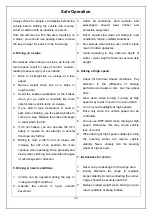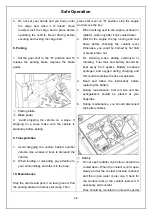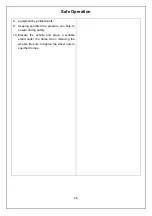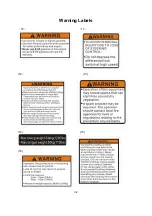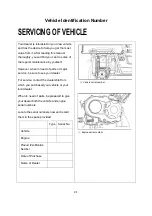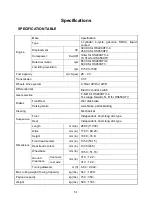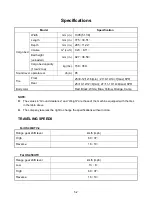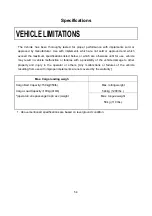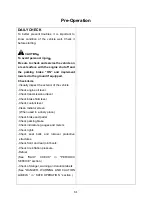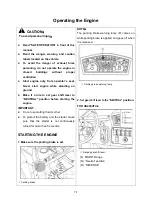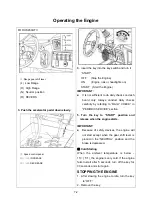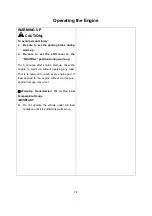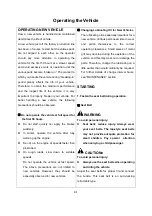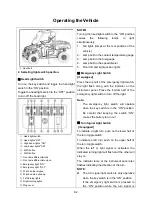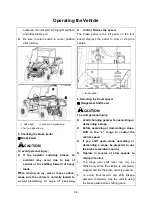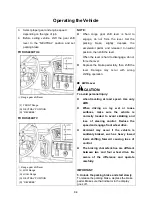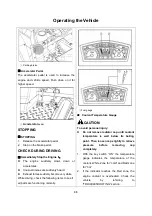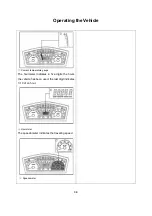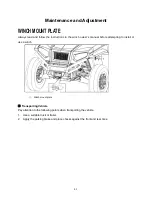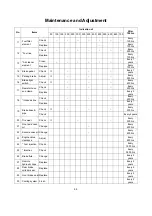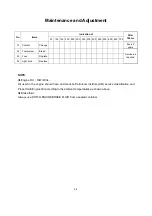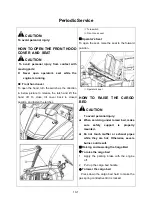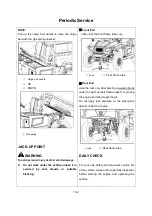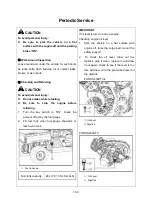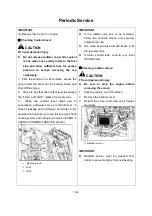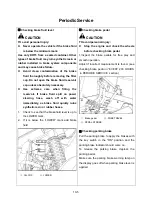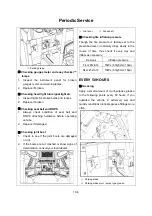
Operating the Vehicle
8-1
OPERATING NEW VEHICLE
How a new vehicle is handled and maintained
determines the life of vehicle.
A new vehicle just off the factory production line
has been, of course, tested, but the various parts
are not aligned to each other, so the operator
should pay more attention to operating the
vehicle for the first 50 hours at a slower speed
and avoid excessive work or operation until the
various parts become “broken-in.” The manner to
which you handle the vehicle during “breaking-in”
period greatly affects the life of your vehicle.
Therefore, to obtain the maximum performance
and the longest life of the vehicle, it is very
important to properly break-in your vehicle. For
better handling a new vehicle, the following
precautions should be observed.
■
Do not operate the vehicle at full speed for
the first 50 hours.
Do not start quickly nor apply the brakes
suddenly.
In winter, operate the vehicle after fully
warming up the engine.
Do not run the engine at speeds faster than
prescribed.
On rough roads, slow down to suitable
speeds.
Do not operate the vehicle at fast speed.
The above precautions are not limited to
new vehicles. However, they should be
especially observed for new vehicles.
■
Changing Lubricating Oil for New Vehicles
The lubricating oil is especially important for a
new vehicle. Various parts need time to wear
and polish themselves to the correct
operating clearances. Small pieces of metal
grit may develop during the operation of the
vehicle; and this may wear out or damage the
parts. Therefore, change the lubricating oil a
little earlier than would ordinarily be required.
For further details of change interval hours,
see “MAINTENANCE” section
STARTING
1. Fasten the seat belt during operation.
■
Seat Belt
WARNING
To avoid personal injury:
Seat belts reduce injury. Always wear
your seat belts. The lap-style seat belts
may not provide adequate protection for
small children. Pay special attention
when carrying a child passenger.
CAUTION
:
To avoid personal injury:
Always use the seat belts when operating
and riding the vehicle.
Adjust the seat belts for proper fit and connect
the buckle. This seat belt is an auto-locking
retractable type.
Summary of Contents for HS 400-4
Page 7: ...Introduction HS 400 4 HS 450 1 7 LOCATION OF PARTS...
Page 8: ...Introduction HS 400 4 HS 450 1 8 ILLUSTRATED CONTENTS...
Page 9: ...Introduction HS 400 4 HS 450 1 9...
Page 15: ...Warning Labels 3 1 Warning and caution labels 1 2 3 4 5 6 7 8 9...
Page 16: ...Warning Labels 3 2 10 11 12 13 14 15 16...
Page 17: ...Warning Labels 3 3 17...

